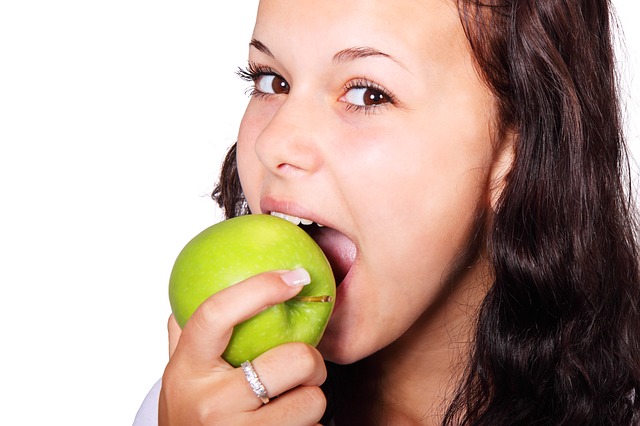Certain foods contribute to tooth decay in a major way, while others do just the opposite and can actually help reduce plaque and tartar. Let’s dwell into which foods are tooth friendly, and which aren’t, and which ones are destructive to our teeth and gums.
What causes tooth decay?
By eating sugary foods and foods high in starch, you are also feeding the plaque causing bacteria in your mouth, and the harmful bacteria that live in the plaque. Plaque starts out as a thin layer of biofilm, which is composed primarily of bacteria, carbohydrates and proteins, and accumulates on the hard surfaces inside the mouth (like teeth, crowns and dental implants). The bacteria inside plaque feed on the carbs and the sugars that get inside the mouth, and break them down, producing acidic by products that destroy the enamel of your teeth. In the long run these acids will cause tooth decay and further damage, along with tartar as well. The bacteria in plaque can also cause halitosis, and can cause gingivitis, alveolitis and periodontitis.
Enemies of the teeth
Sweets, and in particular lollipops and hard candies can cause a lot of destruction in our mouths. Experts warn that if you crave sweets, and must have them, choose ones that do not stick to your teeth, and to avoid lollipops, hard candies, toffee or caramel, or any sweets that last a long time. Colouring agents that can colour our tongues can also stain teeth. How bad chocolate is for teeth depends on its quality; chocolate that is high quality and has at least 70% cocoa in it is much better for your teeth than other forms of candy.
Starchy foods are even more dangerous to teeth, especially if they can get stuck between teeth. White bread, chips or French fries are such foods, and you might want to rinse your mouth out, or better yet brush your teeth an hour or so after eating them.
Tooth decay in children and teens is almost always caused by consuming sugary drinks and sodas, as these drinks have tons of sugar, and carbolic acids, phosphorus and citric acid, which is a disaster for your enamel. Consuming alcohol and many different kinds of medication can also wear out your tooth enamel. If you have to take medicine that increases your acid production or creates an acidic environment inside your mouth, you may want to look into purchasing some high fluoride mouth rinse or mouthwash, or to look into buying fluoride based gels or ointments, and use these to replenish the minerals your tooth enamel has lost from being dissolved in acid.
Our heroes: vegetables, dairy and tea
Fruits and vegetables that are high in fibre are particularly good for your teeth, as they increase saliva production, causing your saliva to flow. Saliva offers unbeatable natural protection, as the human spit is antibiotic, and lubricates the teeth and soft tissues in the mouth; it is the most important thing, together with a rigorous at home oral dental care routine, in combating tooth decay.
Milk, unsweetened yoghurt, and hard cheeses also increase saliva production, and their high levels of calcium, magnesium and fluoride replenish the enamel with minerals that will minimize the risk of tooth decay.
The beneficial polyphenols of green and black tea neutralize the pH of dental plaque, rendering it harmless to teeth, and tea actually stops bacteria from further reproducing. While tea does protect the health of our teeth, it does no favours for their appearance; black tea in particular can stain teeth a nasty brownish colour, so only consume this substance in moderation, and drink it with a straw if you can. Sugar free gum and foods that are high in fluoride, like fluoride enriched mineral water, isotonic sports drinks (sugar free, of course), cereals and grains also help the mouth to clean itself.
Proper oral care
Besides what you eat, the most important factor in having healthy teeth is how well you care for them. Brushing at least twice a day and the use of floss is absolutely essential. If you do not have the opportunity to brush your teeth after a meal, make sure you rinse or drink some water. Do not eat sugary foods by themselves, but rather as part of a meal, and allow 2 hours to pass between meals, to give the saliva a chance to cleanse the mouth of bacteria.
Image: 1


